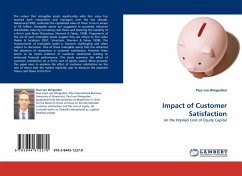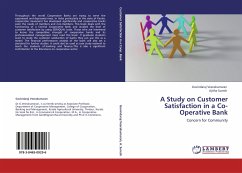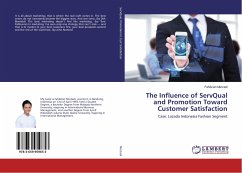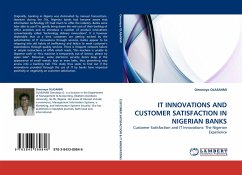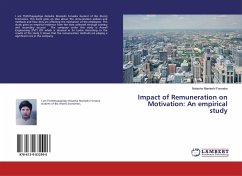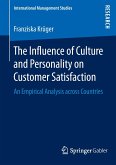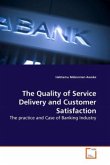The notion that intangible assets significantly adds firm value has reached both researchers and managers over the last decade. Nakamura(1999), estimates the capitalized value of them to be in excess of $6 trillion. Intangible assets are suggested to positively influence shareholder value by increasing cash flows and lowering the volatility of a firm's cash flows (Srivastava, Shervani & Fahey, 1998). Proponents of the use of such intangible assets suggest they are critical to firm value (Aaker & Jacobson 2001; Srivastava, Shervani & Fahey 1998). The measurement of intangible assets is however challenging and often subject to discussion. One of these intangible assets that has attracted the attention of researchers is customer satisfaction. However there seems to be mixed evidence of customer satisfaction leading to enhanced financial performance. This study examines the effect of customer satisfaction on a firm's cost of equity capital. More precisely this paper aims to examine the effect of customer satisfaction on the rate of return that the market implicitly uses to discount the expected future cash flows of the firm.
Bitte wählen Sie Ihr Anliegen aus.
Rechnungen
Retourenschein anfordern
Bestellstatus
Storno

